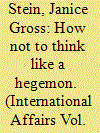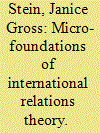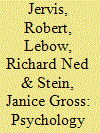| Srl | Item |
| 1 |
ID:
187648


|
|
|
|
|
| Summary/Abstract |
As the United States experiences a relative decline in its share of global GDP and China increases its relative share, there is growing concern about the consequences of intensifying competition between the two great powers. This article takes a wider angled view, warns against a single narrative and provides a collection of plausible stories. First, the story of the rise of China and the decline of the United States that relies heavily on ‘hard’ measures like GDP and relative military capability overlooks other relevant indicators such as normative and network power. I argue that the United States enjoys considerable advantages as measured by both these indicators and will continue to do so for some time. Second, the status of a great power in the international system is a product not only of systemic and structural forces but also of economic and political capacity that enables governments to make strategic choices. The future is contingent, not determined, because the strategies leaders choose matter. I build a matrix of nine possible worlds that result from the choices that the leaders of China and the United States could make over the next twenty years. Finally, I argue that the biggest threat to international peace may come not from rising powers, but when the leaders of the challenger as well as the defender fear that their power may have peaked and that they are beginning to decline.
|
|
|
|
|
|
|
|
|
|
|
|
|
|
|
|
| 2 |
ID:
153563


|
|
|
|
|
| Summary/Abstract |
Almost forty years ago, a small group of scholars drew on cognitive psychology to explain anomalous patterns of behavior by leaders on issues of international security. Although it made significant contributions to theory and research, that scholarship did not diffuse broadly into the field. Drawing on concepts in psychology and behavioral economics, research that uses new methods is now producing a wave of scholarship in international relations exemplified by the work in this special issue. Analysis of the use of prospect theory over the last three decades identifies the scope conditions that enable the predictions of rational choice and psychological theories. These scope conditions motivate the focus on the heterogeneity of decision makers that is at the core of current contributions. Future research will move beyond the now-sterile debate between rational choice and psychology.
|
|
|
|
|
|
|
|
|
|
|
|
|
|
|
|
| 3 |
ID:
044330


|
|
|
|
|
| Publication |
London, Croom Helm, 1985.
|
| Description |
244p.
|
| Standard Number |
0709935226
|
|
|
|
|
|
|
|
|
|
|
|
Copies: C:1/I:0,R:0,Q:0
Circulation
| Accession# | Call# | Current Location | Status | Policy | Location |
| 025797 | 327.1720956/MAR 025797 | Main | On Shelf | General | |
|
|
|
|
| 4 |
ID:
001627


|
|
|
|
|
| Publication |
London, Johns Hopkins University, 1985.
|
| Description |
xx, 270p.
|
| Standard Number |
0801838428
|
|
|
|
|
|
|
|
|
|
|
|
Copies: C:1/I:0,R:0,Q:0
Circulation
| Accession# | Call# | Current Location | Status | Policy | Location |
| 041229 | 355.0217/JER 041229 | Main | On Shelf | General | |
|
|
|
|
| 5 |
ID:
189337


|
|
|
|
|
| Summary/Abstract |
Deterrence by denial is gaining attention as a counter-terrorism strategy. Yet there are formidable obstacles to testing its empirical validity. We argue that experimental and quasi-experimental evidence from criminology offers support for deterrence by denial strategies. Studies of individual offending, gangs, and mafias suggest that deterrence by denial would not displace terrorist activity elsewhere. We also find evidence that physical target hardening and enhanced human guardianship can deter terrorism, with public surveillance being less effective. Criminological evidence thus supports that deterrence by denial works by increasing the risk of failure. We argue for further rapprochement between terrorism and related research fields.
|
|
|
|
|
|
|
|
|
|
|
|
|
|
|
|